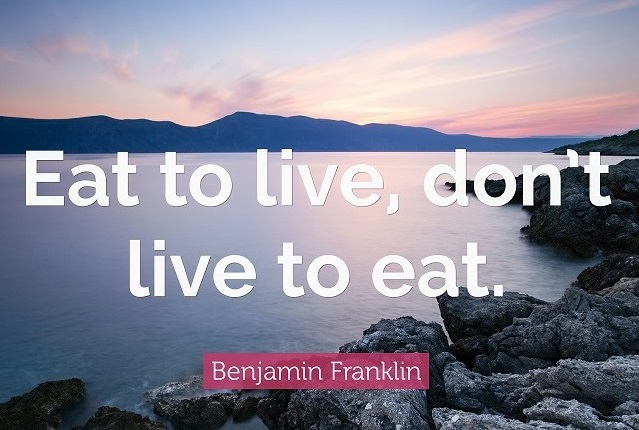

One should eat to live, not live to eat. -- Benjamin Franklin
As an endocrinologist, I’ve been involved in treating many patients with diabetes and obesity over the years. As a physician, my challenge is to make patients aware of how important leading a healthy lifestyle is in preventing the onset of diabetes and diabetes complications. Most of my patients know what to do but face other challenges, including lack of access to healthy food. A patient once told me it was hard for her to eat healthy because her nondiabetic partner preferred to eat tempting high-carb meals. Another patient could not afford more expensive healthy foods such as fresh vegetables and fruits.
Centuries ago, Hippocrates said, “Let food be thy medicine, thy medicine shall be thy food”—this applies more today than ever before. I recommend you do your best to lead a healthy lifestyle. Any effort is better than none, and studies have shown that even small changes go a long way and inspire better quality of life and increased longevity.
We’re taught there are 9 calories in 1 gram of fat, 4 calories in 1 gram of protein, and 4 calories in 1 gram of carbohydrates. Yet, when you put the same calories into different bodies, you can get drastically different results. Two similar individuals can eat and exercise identically but end up at different weights. To complicate matters, you can even get different results when you put the same calories into the same body at different times.
Metabolism slows with age and responds to calorie restriction by deriving sustenance from fewer calories. This notion that metabolism can be ramped up or down has fueled debate over which factor leads to more weight loss: low-fat, low- carbohydrate meals or some other diet. Some foods can act as hormones that switch signaling pathways on and off, determine how food is metabolized, and perhaps aid in weight gain or loss. No single dietary approach has been proven superior for long-term weight loss. After years of research, scientists are still arguing about which diet is best.
1.The authors of a 2014 JAMA report comparing weight loss results from 48 randomized trials that involved overweight and obese adults who ate a low-fat, low-carb diet found that individual diet differences had little impact on overall weight loss.
2.This observation supports most doctors’ recommendations that patients at risk of diabetes follow any diet plan that will result in weight loss. The diet you can stick with the longest does the most good.
Future research into specific micronutrient actions may one day allow us to create much more tailored nutritional intervention. Recent research has centered on endocrine- disrupting chemicals called “obesogens” found in foods, plastics, household goods, cosmetics, and many fungicides. These obesogens have been shown to alter fat cell function in animal studies.3 4
References
W. Holtcamp, "Obesogens: An Environmental Link to Obesity," Environmental Health Perspectives, vol. 120, no. 2, 2012.
A. M. Sharma, "Weight-loss diets only work when you follow them," Evidence-based Medicine, vol. 20, no. 3, p. 103-104, 2015.
B. C. Johnston, S. Kanters, K. Bandayrel, P. Wu, F. Naji, R.Siemieniuk, G. D. Ball, J. W. Busse, K Thorlund, G. Guyatt, J. P. Jansen, E. J. Mills, “Comparison of weight loss among named diet programs in overweight and obese adults: a meta-analysis,” JAMA, 2014 Sep 3; 312 (9): 923-33. doi: 10.1001/jama.2014.10397.
A. Janesick and B. Blumberg, "Obesogens: an emerging threat to public health," American Journal of Obstetrics and Gynecology, vol. 214, no. 5, p. 559-565, 2016.